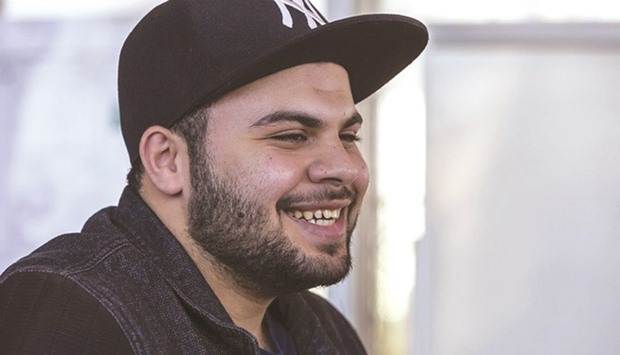A “smart” jersey that prevents sudden cardiac death (SCD) on the football pitch could become a reality in time for the 2022 FIFA World Cup Qatar, thanks to Challenge 22, an innovation award launched by the Supreme Committee for Delivery & Legacy (SC).
For one of the semi-finalists of Challenge 22’s second cycle, the prevention of sudden cardiac death (SCD) on the football pitch is a personal issue, according to a report on the SC website yesterday.
Qatar resident Elsherif Mahmoud was motivated to find a solution after he lost two of his uncles to SCD at a young age. In order to prevent this happening on the pitch, he and his team have come up with the idea to create a “smart” jersey that provides data related to players’ cardiovascular performance in real-time.
Since the tragedy of Marc-Vivien Foe’s death during the FIFA Confederations Cup 2003 semi-final, SCD continues to claim lives on the football pitch.
Elsherif said: “Our innovation could allow us to detect cardiovascular dysfunctions by placing portable electrocardiogram devices on players, giving us a real-time feed of their cardiovascular performance without interfering with their athletic performance.”
According to the Sudden Death in Football paper published in Aspetar Sports Medicine Journal, up to 90% of all non-trauma-related sudden deaths in sport are due to disorders of the cardiovascular system.
Elsherif explained: “With this idea we hope to save the lives of players through preventative measures, especially since researchers have determined that sudden heart attacks exhibit signs and indicators that, if flagged early and immediately addressed, can forewarn us about a heart attack. While monitoring a player’s vital signs, the data is fed into a specific algorithm that runs an analysis and raises alerts, if necessary.”
As a FIFA-accredited medical centre of excellence, Aspetar has examined over 5,000 athletes, including every professional football player competing in the Qatar Stars League as a part of pre-participation screening programme.
The team has submitted their advanced proposal for the semi-finals of Challenge 22, providing more details to support the information they initially submitted. The exercise enabled them to solidify their idea and take it forward into a more realistic project plan.
All Challenge 22 semi-finalists have had access to a network of mentors – along with two training workshops provided by programme partner AstroLabs – to help develop their proposals. The teams had six weeks to enhance their submissions, with judges (reviewers) now reviewing submissions before they announce the finalists in mid-April.
Finalists will then be invited to Doha to take part in interactive trainings, mentorship sessions and workshops, all of which are designed to progress their ideas ahead of presentations to the judging panel.
Elsherif believes that the combined talents of his team – which includes electrical engineering, biology and medical expertise – and their shared passion to innovate gives them everything they need to win Challenge 22.

Challenge 22 semi-finalist Elsherif Mahmoud.
